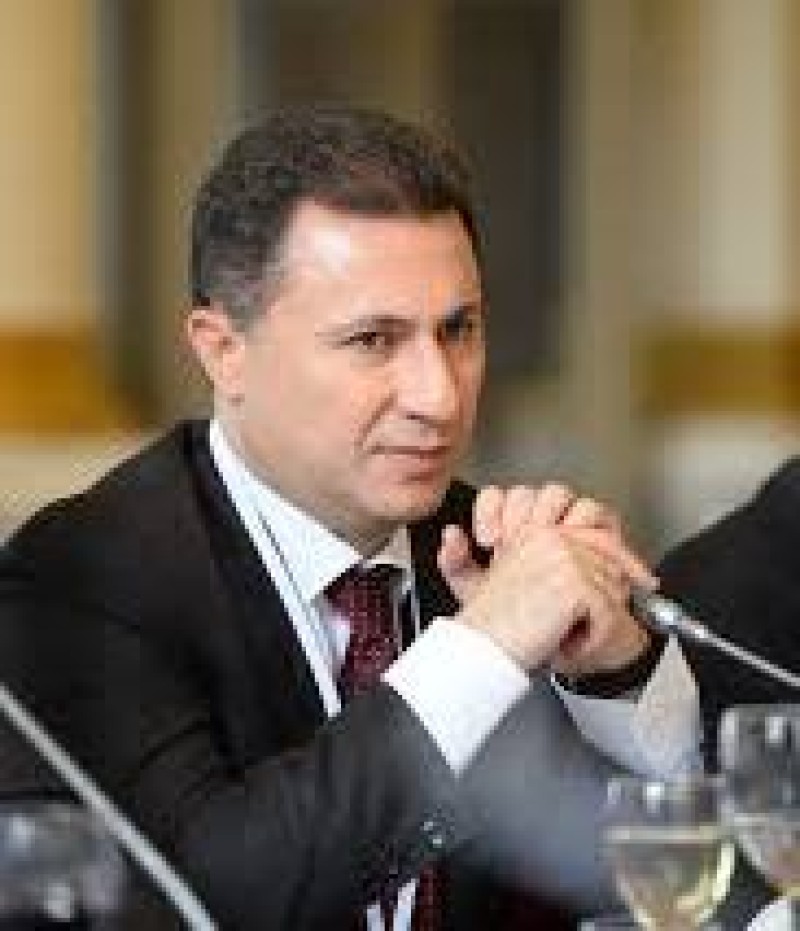The late-night deal cleared the road to implement an agreement made June 2 to resolve a long-running political crisis. The agreement stipulates that main opposition party the Social Democrats (SDSM) can appoint a new Ministry of Interior and the Ministry of Social Affairs.
The June deal had seemed on the brink of collapse after deadlines were missed and the opposing political parties, Gruevski’s VMRO-DPMNE and Zaev’s SDSM, failed to iron out key differences.
The SDSM named its general secretary Oliver Spasovski as the new Interior Minister, while the party’s deputy president Frosina Remenski will take the chair at the Ministry of Social Affairs.
The parties also agreed to a new and binding governmental code, as well as a law on the use of a controversial set of recordings that the SDSM claims is the result of a plot by Gruevski with his former chief of secret police to wiretap 20,000 of his own citizens including journalists, activists, and members of his own cabinet.
The new governmental code will determine the roles and jurisdiction of the deputy ministers of the government, and states that every minister’s deputy should be appointed from the opposite party to the minister themselves. For example, if a minister is appointed by the Social Democrats, his or her deputy should be appointed by the ruling party VMRO-DPMNE.
The law on wiretapped materials is one of the most contentious matters up for debate. For now, what has been agreed about the topic this morning has not been made public.
Previously, the ruling party made an attempt to pass a law that would ban publication of the alleged wiretaps in domestic and foreign media as well as on social networks. The Social Democrats strongly opposed the move and raised the possibility of publishing more of the so-called “bombs”, saying they had only agreed to hold off publishing more of the material up until election time.
Another important development was made on Thursday with the election of a team of staff for the new Special Prosecutor, who was appointed to examine allegations made in the “wiretaps”, and the approval of their budget. This followed weeks of uncertainty and obstruction by judicial institutions, with critics claiming they acted on the wishes of the ruling party.
Special Prosecutor Katica Janeva, who was elected by a mutual agreement between the ruling VMRO-DPMNE and opposition SDMS, is tasked to investigating the illegal surveillance cases that sparked political crisis early this year. She has said that she could be ready to bring the first criminal charges by the end of this year.
Earlier this year the SDSM accused Gruevski and his cousin Saso Mijalkov, who was at the time chief of the secret police, of orchestrating the wiretapping of more than 20,000 Macedonian citizens.
Since then, the SDSM have released a series of audio recordings that it says feature top politicians talking about their corrupt activities.
Prime Minister Gruevski insists that the wiretapping was performed by unknown foreign intelligence services and leaked to the opposition.
Matters relating to the investigation of possible high-level corruption were the main sticking points blocking the implementation of the June agreement.
The ruling VMRO-DPMNE had also insisted that the new Interior Minister – an opposition appointment – should have limited jurisdiction. They dropped the demand
Gruevski is expected to resign by the end of January, according to the June agreement. The transitional government will then oversee the elections scheduled for April 2016.
By Saska Cvetkovska






